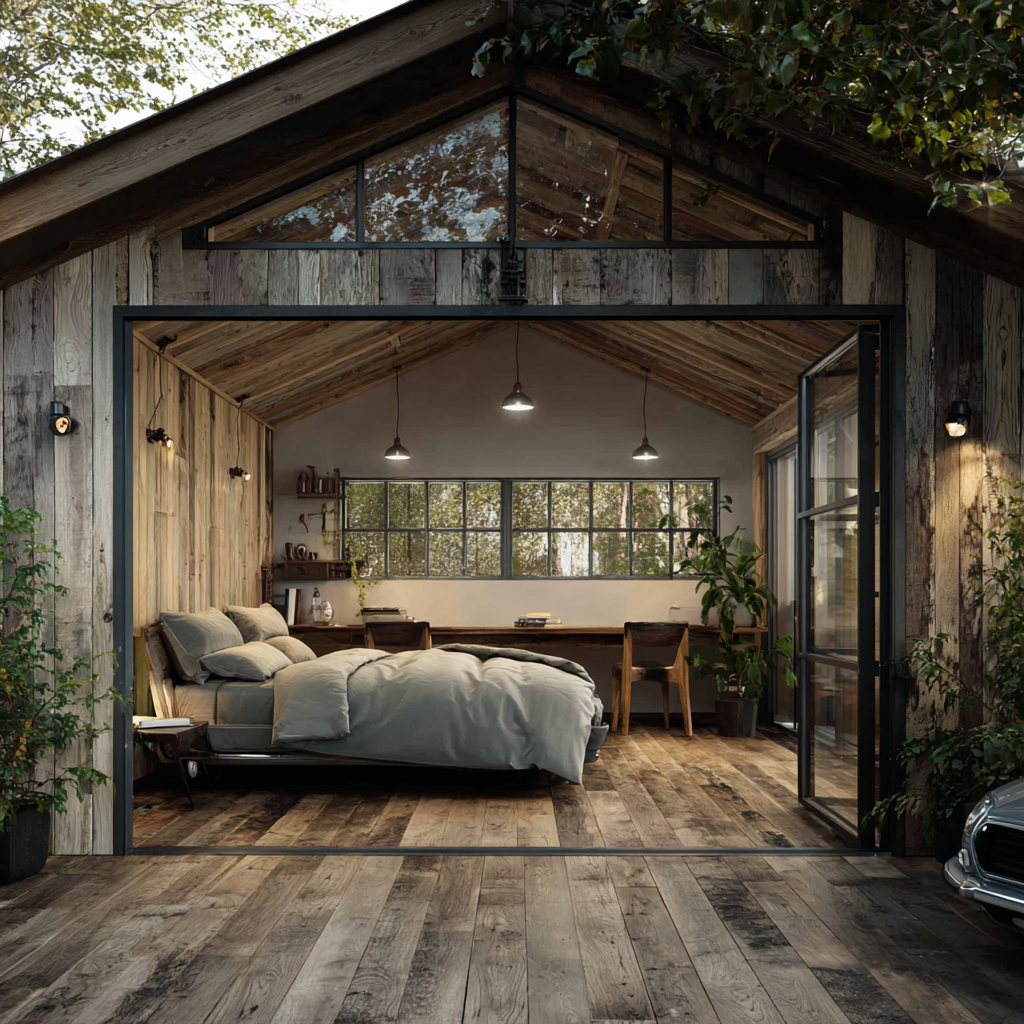Do I need consent for a garage converted into a bedroom - The low down
Convert Your Garage and Add a Bedroom? Here’s How You Can Do It; and Add 20% to Your Property Value
Thinking about converting your garage into a bedroom or living space, but worried about losing valuable storage or parking? Good news! With a smart design and a bit of building know-how, you can have both. I’m writing this as we are literally going through this scenario with a client at the moment. (There’s is a bit different though with a elevated house and semi enclosed garage underneath the home)
In this journal entry, we’ll break down:
The tech/building consent rules you need to understand
Some practical design how-tos
And how doing this right could boost your property’s value by up to 20%
Why Convert a Garage? Why Not Just Add On?
Adding a new bedroom is one of the best ways to increase your home’s value; especially in dense suburbs in Auckland, where families, tenants, and first-home buyers are all hunting for flexible space.
The problem? Extensions are expensive. If you’ve got a realistic pricing expectation here im more than happy to help! But if you’ve got an underused garage, you’ve already got the space and structure ; you just need to convert it smartly.
And here's the cool thing: if you can keep even a partial garage (for tools, bikes, storage or a small car) and gain a fully Code-compliant extra room, your home suddenly looks a lot more attractive to buyers and renters (and it shows in the value).
The Tech Stuff: What You Need to Know First
Before you knock up some GIB and call it a bedroom, it’s important to know this isn’t just cosmetic (and yes, you will need building consent).
Here’s why:
1. You're Changing the Use of the Space
A garage is classed as a non-habitable space under the NZ Building Code. A bedroom (or games room, office, lounge, etc.) is habitable — and that means:
It must meet current Code requirements (insulation, weathertightness, light, ventilation, moisture control)
It triggers Section 115 of the Building Act – a “change of use” – which requires building consent. I hear you saying “what if we didn’t call it a bedroom’? Well what if you rented it out and then they used it as a bedroom.
2. You’ll Likely Need to:
Insulate the walls, ceiling, and possibly floor to meet H1 Energy Efficiency
Add a glazed window or door (for light and ventilation)
Ensure the space is dry and weathertight – garages often aren’t sealed properly
Add or upgrade smoke alarms and egress pathways (fire safety)
Trying to skip consent or cut corners will bite you later (it could stop a sale or insurance claim in its tracks).
The Smart Way: How to Convert Without Losing Your Garage
The trick is zoning the garage: keeping part of it as usable garage space, and converting part of it into a compliant habitable room.
Here’s How:
Divide the garage space with a fully framed, insulated internal wall
Retain access to one half (storage, bikes, tools or even a small car)
Convert the other half into a bedroom, office, or lounge with proper:
Insulation (floor, walls, ceiling)
Natural light (new window or glazed door)
Vapour barrier or waterproofing
Access to smoke alarms or alarm system
Use a sliding door or double-door layout to save space and improve flow
Update the front exterior if needed (e.g. swap a double garage door for a roller door + entrance door dream combo)
This works best in double garages, but even some large single garages can accommodate this setup.
How It Adds Value – Up to 20%
Why Buyers and Valuers Love This:
A 3-bed home with garage is worth significantly more than a 2-bed with garage
You haven’t lost a garage, you’ve added flexibility
Buyers see the rental potential or teenage retreat/home office/yoga studio/gym
You tick the box for future resale or dual living potential
Real Numbers?
Depending on your area, this type of smart upgrade can:
Increase your home’s value by 10–20%
Boost weekly rent by $100–$200 per week if used as an extra room
Save $50k–$150k compared to building an external extension
Have questions? Let me see your space and I can walk you through it.
-Laura Heynike
Pocketspace Garage Conversion

